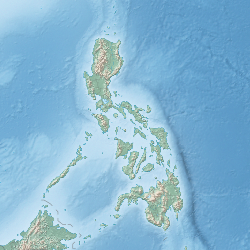 Island Cove in 2023 | |
| Physical features | |
|---|---|
| Divisions | Island Cove, Animal Island |
| Location | |
| Coordinates: 14°27′40″N120°55′24″E / 14.46117°N 120.92321°E | |
| Country | Philippines |
| Province | Cavite |
| Municipality | Kawit |
Island Cove was an online gambling complex primarily owned and controlled by Chinese nationals located on Island Cove and Animal Island in Kawit, Cavite, Philippines.
Contents
- History
- As a resort
- As a gambling hub
- Facilities
- Resort
- Gambling hub
- Operations
- Gambling hub 2
- References
It was originally a resort and leisure park called Covelandia Island Resort, which closed in 1986 and later reopened under the name Island Cove Resort and Leisure Park, or simply Island Cove, in 1997. Both were owned by the Remulla political family before the property became a hub for Philippine offshore gaming operators (POGOs). The site was operated by the Philippine Amusement and Gaming Corporation (PAGCOR) before being shut down in 2024.
Island Cove was formerly known as Pulo ni Burunggoy (transl. Burunggoy's Island). [1]




